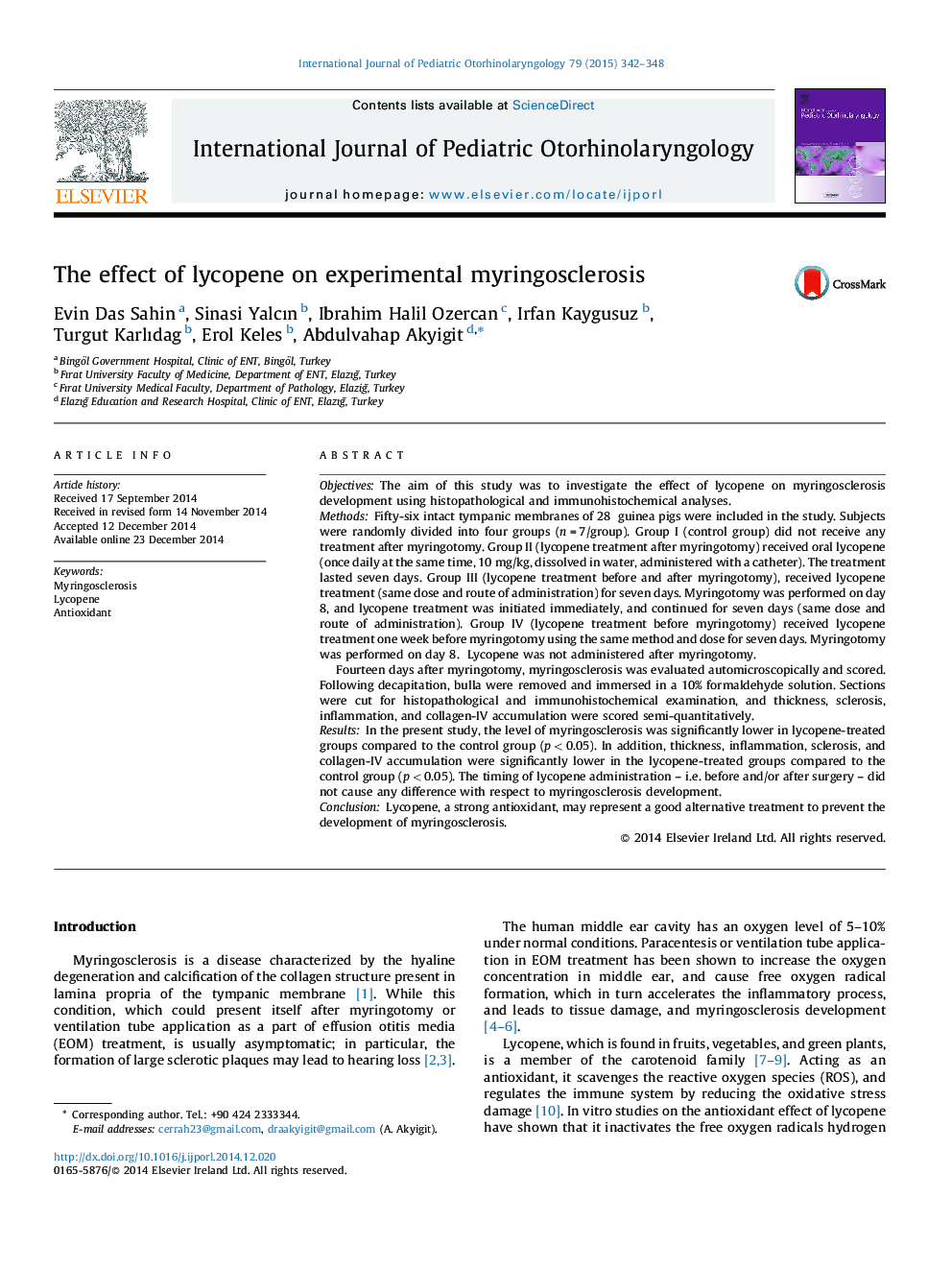| Article ID | Journal | Published Year | Pages | File Type |
|---|---|---|---|---|
| 4111966 | International Journal of Pediatric Otorhinolaryngology | 2015 | 7 Pages |
ObjectivesThe aim of this study was to investigate the effect of lycopene on myringosclerosis development using histopathological and immunohistochemical analyses.MethodsFifty-six intact tympanic membranes of 28 guinea pigs were included in the study. Subjects were randomly divided into four groups (n = 7/group). Group I (control group) did not receive any treatment after myringotomy. Group II (lycopene treatment after myringotomy) received oral lycopene (once daily at the same time, 10 mg/kg, dissolved in water, administered with a catheter). The treatment lasted seven days. Group III (lycopene treatment before and after myringotomy), received lycopene treatment (same dose and route of administration) for seven days. Myringotomy was performed on day 8, and lycopene treatment was initiated immediately, and continued for seven days (same dose and route of administration). Group IV (lycopene treatment before myringotomy) received lycopene treatment one week before myringotomy using the same method and dose for seven days. Myringotomy was performed on day 8. Lycopene was not administered after myringotomy.Fourteen days after myringotomy, myringosclerosis was evaluated automicroscopically and scored. Following decapitation, bulla were removed and immersed in a 10% formaldehyde solution. Sections were cut for histopathological and immunohistochemical examination, and thickness, sclerosis, inflammation, and collagen-IV accumulation were scored semi-quantitatively.ResultsIn the present study, the level of myringosclerosis was significantly lower in lycopene-treated groups compared to the control group (p < 0.05). In addition, thickness, inflammation, sclerosis, and collagen-IV accumulation were significantly lower in the lycopene-treated groups compared to the control group (p < 0.05). The timing of lycopene administration – i.e. before and/or after surgery – did not cause any difference with respect to myringosclerosis development.ConclusionLycopene, a strong antioxidant, may represent a good alternative treatment to prevent the development of myringosclerosis.
